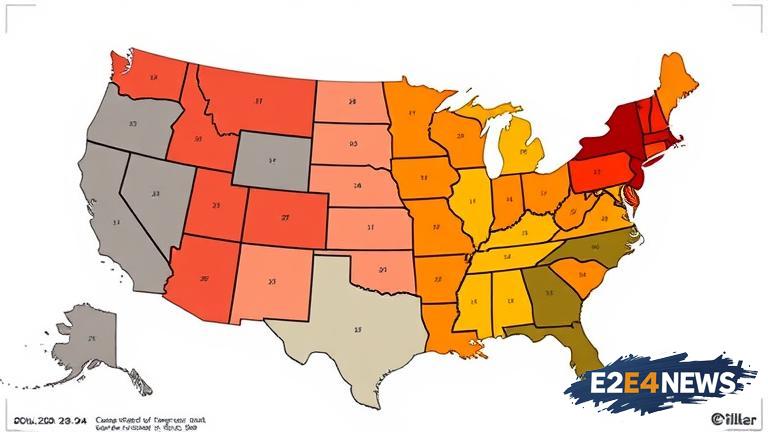A new poll has shed light on the growing concern that the partisan divide in the United States is not only affecting politics but also the perception of basic facts. The survey, which polled a significant number of adults, found that a majority of respondents believe that Democrats and Republicans cannot agree on fundamental facts. This stark realization has sparked concerns about the erosion of trust in institutions and the media. The poll results show that 70% of adults think that Democrats and Republicans disagree on basic facts, while 21% believe that they can agree. The remaining 9% were unsure. The survey also found that 60% of adults think that the media is biased, with 45% believing that the bias is towards the left and 25% towards the right. The poll’s findings have significant implications for the country’s political landscape, as the inability to agree on basic facts can hinder constructive dialogue and compromise. The partisan divide has been exacerbated by the proliferation of social media, which can create echo chambers that reinforce existing beliefs. Furthermore, the poll highlights the need for fact-based reporting and the importance of media literacy in today’s digital age. The survey’s results also underscore the challenges faced by policymakers in addressing pressing issues, such as climate change and economic inequality, when there is a lack of consensus on the underlying facts. The poll’s findings are consistent with previous studies, which have shown that the partisan divide is not only limited to politics but also extends to issues such as science and history. The survey’s results have sparked a heated debate about the role of media and education in promoting critical thinking and fact-based discourse. Some experts argue that the media has a responsibility to provide balanced and unbiased reporting, while others believe that education systems need to be revamped to emphasize critical thinking and media literacy. The poll’s findings also raise questions about the impact of social media on democracy, with some arguing that it has created a culture of polarization and echo chambers. In response to the poll’s findings, some lawmakers have called for increased funding for media literacy programs and fact-checking initiatives. Others have proposed legislation aimed at promoting transparency and accountability in the media. The survey’s results have also sparked a conversation about the need for bipartisan cooperation and the importance of finding common ground in today’s polarized political landscape. Ultimately, the poll’s findings highlight the need for a nuanced and fact-based approach to addressing the complex challenges facing the United States. By promoting critical thinking, media literacy, and fact-based discourse, it is possible to bridge the partisan divide and foster a more informed and engaged citizenry. The survey’s results serve as a wake-up call for policymakers, educators, and media professionals to work together to promote a culture of fact-based dialogue and constructive debate. As the country moves forward, it is essential to prioritize fact-based reporting, media literacy, and critical thinking to address the pressing issues of our time. The poll’s findings also underscore the importance of civic engagement and the need for citizens to be informed and active participants in the democratic process. By working together to promote fact-based discourse and critical thinking, it is possible to build a more informed and engaged citizenry and to address the complex challenges facing the United States.
